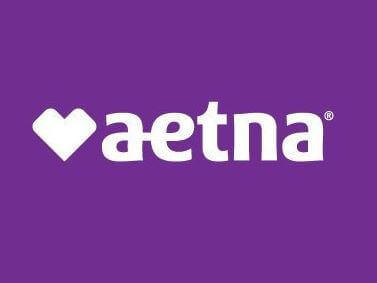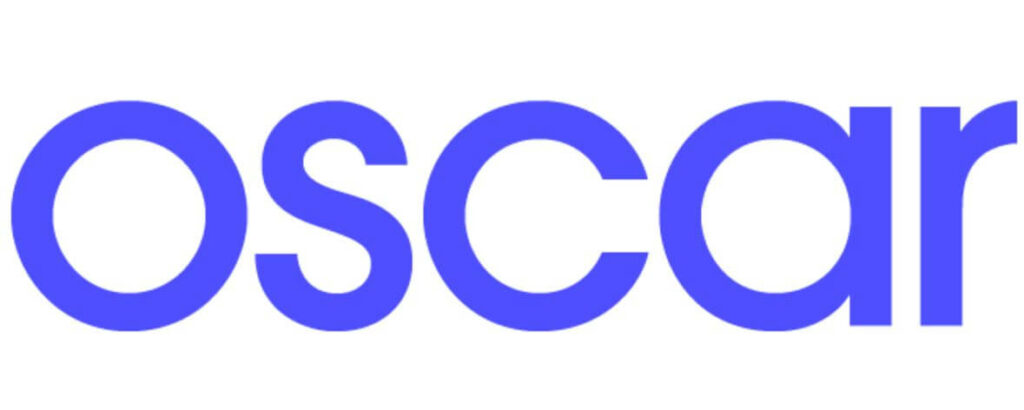When it comes to finding the best health insurance in North Carolina, individuals have a range of options to consider.
Some of the prominent health insurance providers in the state include Blue Cross Blue Shield of North Carolina, Cigna, Ambetter, Bright Health, and UnitedHealthcare.
However, determining the best health insurance company is subjective and depends on various factors such as the type of health insurance plan, specific health care needs, and budget.
It’s important to choose a healthcare provider that offers the coverage needed at a price that aligns with individual financial circumstances.

Aetna
Aetna is a large health insurance company in the United States. It offers a variety of health insurance plans for individuals, families, and employers. Aetna also offers dental, vision, and pharmacy insurance plans.
Aetna was founded in 1853 and is headquartered in Hartford, Connecticut. It has over 33 million members worldwide.
Aetna is a Fortune 500 company and is one of the largest health insurance companies in the United States.

Aetna offers a variety of health insurance plans, including:
- Individual and family plans: These plans are available to people who do not have health insurance through their employer.
- Employer-sponsored plans: These plans are offered by employers to their employees.
- Medicare plans: These plans are available to people who are 65 years of age or older and who are eligible for Medicare.
- Medicaid plans: These plans are available to people who have low incomes and who are eligible for Medicaid.
Aetna also offers a variety of dental, vision, and pharmacy insurance plans. These plans can be purchased separately or as part of a health insurance plan.
Aetna has a network of over 1 million providers nationwide. This means that Aetna members can see a variety of doctors, hospitals, and other healthcare providers without having to pay out-of-network charges.
Aetna also offers a variety of wellness programs and resources to help its members stay healthy. These programs and resources can help members save money on their healthcare costs.
BCBS of NC
Blue Cross and Blue Shield of North Carolina (BCBSNC) is a non-profit, independent licensee of the Blue Cross and Blue Shield Association. Established in 1933, it is the state’s largest health insurance provider, covering over 3.8 million members.
They offer a range of individual and family health insurance plans, as well as employer-sponsored plans and Medicare and Medicaid plans.

What they offer: BCBSNC offers a variety of health insurance plans to meet the needs of individuals, families, and businesses. Their plans include:
Individual and family plans: These plans are available to people who do not have health insurance through their employer.
Employer-sponsored plans: These plans are offered by employers to their employees.
Medicare plans: These plans are available to people who are 65 years of age or older and who are eligible for Medicare.
Medicaid plans: These plans are available to people who have low incomes and who are eligible for Medicaid.
Benefits: BCBSNC plans offer a variety of benefits, including:
- Coverage for preventive care services, such as doctor visits, immunizations, and screenings
- Coverage for hospitalization and other medical services
- Prescription drug coverage
- Vision and dental coverage
- Wellness programs and resources
Network: BCBSNC has a large network of providers throughout North Carolina. This means that members can see a variety of doctors, hospitals, and other healthcare providers without having to pay out-of-network charges.
Here are some additional things to keep in mind when considering BCBSNC health insurance:
- Costs: The cost of a BCBSNC health insurance plan will vary depending on several factors, such as your age, health status, and the type of plan you choose. You can get a quote for a plan online or by speaking with a customer service representative.
- Coverage: Make sure that the plan you choose covers the services you need. You can review the plan details online or by speaking with a customer service representative.
- Network: Make sure that the plan you choose has a network of providers in your area. You can find a list of in-network providers on the BCBSNC website.
UHC
UHC, also known as UnitedHealthcare, is a prominent health insurance company offering a wide range of plans for individuals, families, and businesses across the United States.

- Individuals and families: If you don’t have employer-sponsored insurance, UHC offers various individual and family plans, including options under the Affordable Care Act (ACA) marketplace.
- Employers: They design and administer health insurance plans for businesses of all sizes.
- Medicare beneficiaries: UHC provides Medicare Advantage plans that go beyond Original Medicare, offering additional benefits and coverage options.
- Medicaid recipients: In some states, UHC manages Medicaid plans for low-income individuals and families.
- Dental, vision, and supplemental plans: They offer standalone plans to complement your primary health insurance or cover specific needs like dental or vision care.
Understanding UHC Health Insurance Plans:
- Individual and family plans: Explore options like ACA marketplace plans, short-term plans, or self-employed plans based on your needs and budget.
- Employer-sponsored plans: If you get insurance through your work, understand your plan’s details like network coverage, deductibles, and copays.
- Medicare plans: If you’re 65 or older and eligible for Medicare, consider Medicare Advantage plans from UHC for extra benefits and flexibility.
- Medicaid plans: Eligibility and plan options vary by state, so check with UHC or your state’s Medicaid agency for details.
- Dental, vision, and supplemental plans: Choose from standalone plans to fill coverage gaps or address specific needs like dental care or critical illness insurance.
Key Features of UHC Health Insurance:
- Extensive network: UHC boasts a vast network of healthcare providers, giving you access to various doctors, hospitals, and specialists.
- Variety of plans: With diverse options across categories, you can find a plan that aligns with your budget and healthcare needs.
- Online resources: UHC’s website offers tools and resources to manage your plan, find providers, and access health information.
- Wellness programs: They promote healthy living through various programs and incentives, potentially lowering your healthcare costs.
Making an Informed Decision:
- Assess your needs: Identify your healthcare requirements, budget, and preferred level of coverage.
- Compare plans: Explore different UHC plan options and their benefits, costs, and network coverage.
- Seek guidance: Consult a UHC representative or insurance broker for personalized assistance.
- Read the fine print: Understand plan details like deductibles, copays, exclusions, and network limitations before enrolling.
Cigna
Cigna Health Insurance is a major player in the healthcare field, offering diverse plans for individuals, families, and employers.

Products and Services:
- Individual and family plans: Cater to those without employer-sponsored insurance, featuring various options like Affordable Care Act (ACA) marketplace plans, high-deductible health plans (HDHPs), and traditional PPO and HMO plans.
- Employer-sponsored plans: Design and administer health insurance solutions for businesses of all sizes, allowing customization based on company needs and employee preferences.
- Medicare Advantage plans: Provide expanded coverage beyond Original Medicare for those aged 65 and above, including additional benefits like dental, vision, and hearing.
- Dental and vision plans: Standalone plans to complement primary health insurance or address specific oral and eye care needs.
- International health insurance: Cater to individuals venturing abroad, offering various levels of coverage for medical emergencies and ongoing healthcare needs.
Key Features:
- Extensive network: Boasts a wide network of healthcare providers across the US, granting access to various doctors, hospitals, and specialists.
- Focus on wellness: Promotes healthy living through programs and incentives like discounts on gym memberships and health screenings, potentially lowering long-term costs.
- Digital tools: Offers a user-friendly online portal (myCigna) for managing plans, accessing claims information, and connecting with healthcare providers.
- Dedicated virtual care: Provides 24/7 access to virtual consultations with doctors for minor illnesses and urgent care needs, promoting convenience and affordability.
Choosing Cigna:
- Needs and budget: Evaluate your healthcare requirements, preferred level of coverage, and affordability constraints.
- Plan options: Explore the diverse plans Cigna offers and compare benefits, costs, and network coverage based on your location and needs.
- Network: Ensure the plan you choose has a sufficient network of providers in your area to guarantee convenient access to care.
- Customer service: Consider the ease of contacting customer support and their responsiveness to inquiries or concerns.
Oscar
Oscar Health Insurance is a relatively new health insurance company founded in 2012 with a focus on technology and a member-centric approach.
They offer individual and family plans in 18 states across the United States. Oscar is known for its innovative approach to health insurance, which includes:

- A focus on primary care: Oscar believes that having a strong relationship with a primary care physician is essential for good health. They offer 24/7 access to virtual care through their app, and they have a network of primary care doctors who are employed by Oscar itself. This allows Oscar to have more control over the quality of care that their members receive.
- Technology-driven: Oscar uses technology to make it easy for members to manage their health insurance. They have a user-friendly app that allows members to see their plan details, find providers, and file claims.
- Transparent pricing: Oscar offers clear and upfront pricing for their plans. They also offer a variety of tools to help members understand their costs and make informed decisions about their care.
What Oscar Health Insurance Offers
Oscar offers a variety of individual and family health insurance plans. The specific plans that are available vary by state.
However, all Oscar plans cover the ten essential health benefits that are required by the Affordable Care Act (ACA). These benefits include:
- Ambulatory patient services
- Emergency services
- Hospitalization
- Pregnancy, maternity, and newborn care
- Mental health and substance use disorder services
- Prescription drugs
- Preventive and wellness services
- Rehabilitative and habilitative services
- Laboratory services
- Pediatric dental services
Is Oscar Health Insurance Right for You?
Oscar Health Insurance may be a good option for you if you are looking for a health insurance company that is:
- Focused on primary care
- Technology-driven
- Transparent about pricing
- Offers good customer service
However, it is important to compare Oscar to other health insurance companies in your area to see which one is the best fit for you.
You should consider factors such as the cost of the plans, the network of providers, and the benefits that are covered.
CareSource
CareSource is a non-profit health insurance company offering various plans for individuals, families, and communities across the United States.
They primarily focus on serving those who qualify for government-sponsored programs like Medicaid and Medicare but also offer individual and employer-sponsored plans in select states.

Plans:
- Medicaid: CareSource is a leading provider of Medicaid plans in several states, covering low-income adults, children, pregnant women, and individuals with disabilities. They offer comprehensive coverage for doctor visits, hospital care, prescriptions, and often additional benefits like dental, vision, and transportation to appointments.
- Medicare Advantage: In some states, CareSource offers Medicare Advantage plans for seniors eligible for Medicare Parts A & B. These plans include all original Medicare benefits along with additional perks like dental, vision, hearing, and fitness coverage.
- Marketplace Plans: In select states, CareSource participates in the Affordable Care Act marketplace, providing individual and family plans for those who don’t qualify for Medicaid or have employer-sponsored insurance.
- Employer-Sponsored Plans: In limited areas, CareSource partners with businesses to offer group health insurance plans to their employees.
Key Features:
- Extensive Network: CareSource boasts a broad network of healthcare providers across multiple states, ensuring access to various doctors, hospitals, and specialists.
- Focus on Vulnerable Populations: Their core mission centers around serving Medicaid and Medicare enrollees, offering resources and support tailored to their specific needs.
- Community-Based Approach: CareSource actively engages with local communities to address health disparities and improve access to quality healthcare.
- Affordable Options: With a focus on government-sponsored programs, CareSource plans are generally designed to be affordable for low- and moderate-income individuals and families.
Is CareSource Right for You?
- Location: Check if CareSource operates in your state and offers plans relevant to your situation (Medicaid, Medicare, individual, or employer-sponsored).
- Eligibility: If enrolling in Medicaid or Medicare Advantage, ensure you meet the program’s specific requirements.
- Coverage Needs: Carefully review the covered benefits and network of providers to see if they align with your healthcare needs and preferences.
- Cost: Compare CareSource plans with other options in your area regarding premiums, deductibles, and copays to find the most cost-effective solution.
Ambetter
Ambetter Health Insurance, established in 2007, stands as a subsidiary of Centene Corporation and caters to individuals and families seeking health coverage throughout 29 states in the United States.
They primarily focus on providing Marketplace plans under the Affordable Care Act (ACA) but also offer various other options tailored to different needs and budgets.

Plans Offered:
- Marketplace Plans: Ambetter’s most prominent offering includes Bronze, Silver, and Gold plans within the ACA marketplace. These plans cater to diverse budgets and needs, varying in monthly premiums and out-of-pocket expenses while providing access to Ambetter’s in-network providers.
- Value Plans: Available in select counties across Florida, Nevada, and Texas, these plans provide affordability by focusing on specific healthcare providers and hospitals. Referrals are typically required when seeking care outside the designated network.
- Medicaid Plans: In several states, Ambetter partners with Medicaid to offer coverage to low-income individuals and families who qualify for the program.
Key Features:
- Extensive Network: Ambetter boasts a wide network of providers across its operating states, ensuring access to various doctors, hospitals, and specialists.
- Focus on Affordability: With a wide range of plan options and participation in government programs, Ambetter aims to make health insurance accessible to diverse budgets.
- Additional Benefits: Depending on the chosen plan, Ambetter may offer perks like telehealth consultations, 24/7 customer support, and rewards programs for healthy behavior.
- Simplified Enrollment: Their website and call center assist individuals in navigating the enrollment process and finding suitable plans.
Is Ambetter Right for You?
- Location: Check if Ambetter operates in your state and offers plans that align with your needs (Marketplace, Value, or Medicaid).
- Eligibility: For Medicaid plans, ensure you meet the program’s income and residency requirements.
- Coverage Needs: Evaluate the benefits and network coverage of each plan option to see if they match your healthcare requirements and preferences.
- Budget: Compare Ambetter plans with other providers in your area regarding premiums, deductibles, and copays to find the most cost-effective solution.
AmeriHealth Caritas Next
AmeriHealth Caritas Next is a relatively new health insurance company offering individual and family health plans in select counties across Florida and North Carolina.

They focus on providing affordable, high-quality coverage for individuals and families who:
- Don’t have employer-sponsored health insurance: If you’re self-employed, unemployed, or your employer doesn’t offer health insurance, AmeriHealth Caritas Next plans might be an option.
- Qualify for financial assistance: They offer various plans specifically designed for those who qualify for subsidies through the Health Insurance Marketplace under the Affordable Care Act (ACA).
- Seek comprehensive coverage: Their plans cover the ten essential health benefits mandated by the ACA, including preventive care, hospitalization, doctor visits, mental health services, and more.
Key Features of AmeriHealth Caritas Next:
- Affordability: They prioritize making health insurance accessible through competitive premiums and financial assistance programs.
- Network: They have established a network of healthcare providers in their operating areas, ensuring access to necessary medical care.
- Focus on underserved communities: Their mission aligns with serving individuals and families who may face barriers to quality healthcare.
- Member resources: They offer various resources and support programs to help members navigate the healthcare system and utilize their plan benefits effectively.
Things to Consider Before Choosing AmeriHealth Caritas Next:
- Availability: Check if AmeriHealth Caritas Next operates in your county and offers plans that match your needs.
- Eligibility: If seeking financial assistance, ensure you meet the income and residency requirements for ACA subsidies.
- Network adequacy: Make sure the plan’s network includes doctors, hospitals, and specialists you prefer or who are conveniently located.
- Coverage details: Carefully review the specific benefits covered by each plan and compare them with your healthcare needs and budget.
WellCare
WellCare Health Insurance is a major player in the managed care sector, offering coverage for individuals, families, and communities primarily through Medicaid, Medicare Advantage, and Medicare Prescription Drug plans.
They operate across all 50 states, making them a widely accessible option for those eligible for these programs.

Types of Plans:
- Medicaid: WellCare is a leading provider of Medicaid plans, serving low-income adults, children, pregnant women, and individuals with disabilities. Their plans cover essential healthcare services like doctor visits, hospital care, prescriptions, and often additional benefits like dental, vision, and transportation.
- Medicare Advantage: For seniors eligible for Medicare Part A & B, WellCare offers Medicare Advantage plans. These plans combine Original Medicare benefits with additional perks like dental, vision, hearing, fitness programs, and even in-home support services.
- Medicare Prescription Drug Plans (PDPs): WellCare also caters to Medicare beneficiaries needing standalone prescription drug coverage through their PDP plans.
Key Features:
- Extensive Network: WellCare boasts a vast network of healthcare providers throughout the US, guaranteeing access to various doctors, hospitals, and specialists.
- Focus on Vulnerable Populations: Their mission centers around serving Medicaid and Medicare enrollees, offering dedicated resources and support tailored to their specific needs.
- Culturally Sensitive Care: WellCare prioritizes delivering culturally competent care, catering to diverse communities and languages.
- Wellness Programs: They promote healthy living through various programs and incentives, potentially lowering long-term healthcare costs for members.
Is WellCare Right for You?
- Medicaid: You must meet your state’s specific income and eligibility requirements to qualify for Medicaid coverage through WellCare.
- Medicare Advantage: You must be 65 or older and already enrolled in Medicare Parts A & B to be eligible for WellCare’s Medicare Advantage plans.
- Medicare Prescription Drug Plans: Eligibility for PDPs requires enrollment in Medicare Part D, covering prescription drug costs.
Additional Factors to Consider:
- Specific needs: Carefully review the benefits and network coverage of each WellCare plan option to see if they align with your healthcare requirements and preferences.
- Location: Ensure WellCare operates in your area and offers plans relevant to your specific program (Medicaid, Medicare Advantage, PDP).
- Cost: While primarily serving government-sponsored programs, compare WellCare plans with other options in your area regarding potential out-of-pocket expenses like deductibles and copays.










